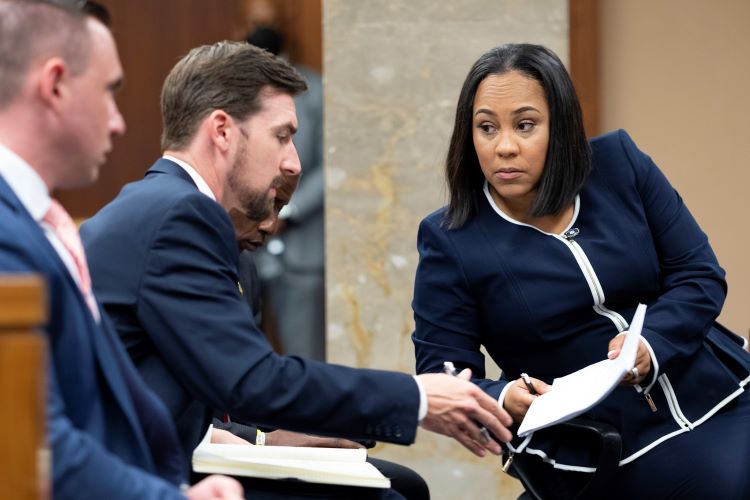Forensic Psychologists Take Center Stage in 2012 Custody Case
Psychologists’ expert witness testimony and parental alienation claims in a Tennessee custody case.
Maupin v. Maupin
The mother and father in this case were married in 1993 and had three children, born in 1998, 1999, and 2002. The mother worked at a hospital, and also sold jewelry. At the time of the marriage, the father worked at Lowe’s, but shortly after they married, the father quit his job. The mother claimed that this was against her wishes. He concentrated on farming, but rarely showed a profit. Starting in 1998, he worked part-time as a mail carrier.
In 2007, the mother began an extramarital affair, and the father learned of it a few months later. The mother claimed to end the affair to save the marriage, and the father gave up farming to spend more time with her. However, the mother continued the affair and the father became aware of it. The mother filed for divorce shortly thereafter. The parties continued to live together in the marital residence for several months.
Two expert witnesses testified by deposition. The first was Charlton S. Stanley, Ph.D., A.B.P.P., a forensic psychologist who did a psychological evaluation of the mother. He met with the mother, and also listened to a number of recorded telephone conversations between various family members.
Many of these recordings were played into the court record, “until the trial court tired of father’s profanities.” At that time, transcripts of the recordings, with profanities redacted, were submitted as exhibits.
Dr. Stanley testified that he was “appalled by the disrespect” shown to the mother by the youngest son. Despite the child’s age, Dr. Stanley identified the son to be the dominant child and “Alpha Male” of the family. He noted that the son appeared to be extremely aggressive and full of anger, and made accusations against his mother. Even though the father could be heard in the background of these recordings, he did nothing to intervene.
Dr. Stanley also concluded that the mother was “situationally depressed,” although she had no diagnosable disorder as defined by DSM-IV. He concluded that the father had “pursued a course of parental alienation” between the mother and their sons.”
The other expert witness conducted an evaluation at the request of the guardian ad litem. That expert was Wayne Tasker, Psy.D. LPC, LCSW, BCPC, who met individually with both the parents and the children. Dr. Tasker concluded that the children would benefit from a parenting schedule which included quality time with both parents. His ultimate recommendation was that “they do have contact, that the boys have contact with their mom, that the daughter has contact with the dad, and that basically the kids have contact with each other. You know, the two boys and the girl.”
The trial court named the mother as the primary residential parent of the daughter, and the father was named primary residential parent of the sons. Each was assigned 247 parenting days in that role. However, the residential schedules were designed to facilitate the children’s shared time together.
After trial, the mother made a motion for contempt, arguing that the father was discouraging the boys from visiting the mother. However, the trial court held that the father had indeed encouraged them, but they refused to go with their mother.
The mother brought an appeal to the Tennessee Court of Appeals and raised a number of issues, including the parenting arrangements. In particular, she argued that it was error to name the father primary residential parent of the boys, since allegedly “it was father who poisoned the boys against her.” The father contended, however, that the mother brought it on herself by virtue of having an affair.
The appeals court quoted some of the recorded telephone conversations, and agreed that some of the father’s comments amounted to “venom.” Based upon the boys’ testimony in chambers, it noted that they had obviously adopted the father’s views.
But the appeals court concluded, quoting an earlier case, that “separating siblings is a drastic remedy” to be done only in extraordinary cases. For these reasons, it affirmed the parenting plan adopted by the trial court. It did, however, remand the case to hold a hearing on the subject of family counseling. It asked the lower court to appoint appropriate therapists, with the goal of attaining a healthy family relationship.
The appeals court also modified a portion of the judgment regarding the mortgage on the marital home, before remanded the case for family counseling.
420 S.W.3d 761 (Tenn. Ct. App. 2013).
See original opinion for exact language. Legal citations omitted.
To learn more, see Child Custody Laws in Tennessee and our video, How is child custody determined in Tennessee?
See also Tennessee Parenting Plans and Child Support Worksheets: Building a Constructive Future for Your Family featuring examples of parenting plans and child support worksheets from real cases available on Amazon.com.






